Home

PCOS & PCOD

Is Curd Good for PCOS: The Ultimate Guide to Debunking Myths and Discovering Benefits
In this Article
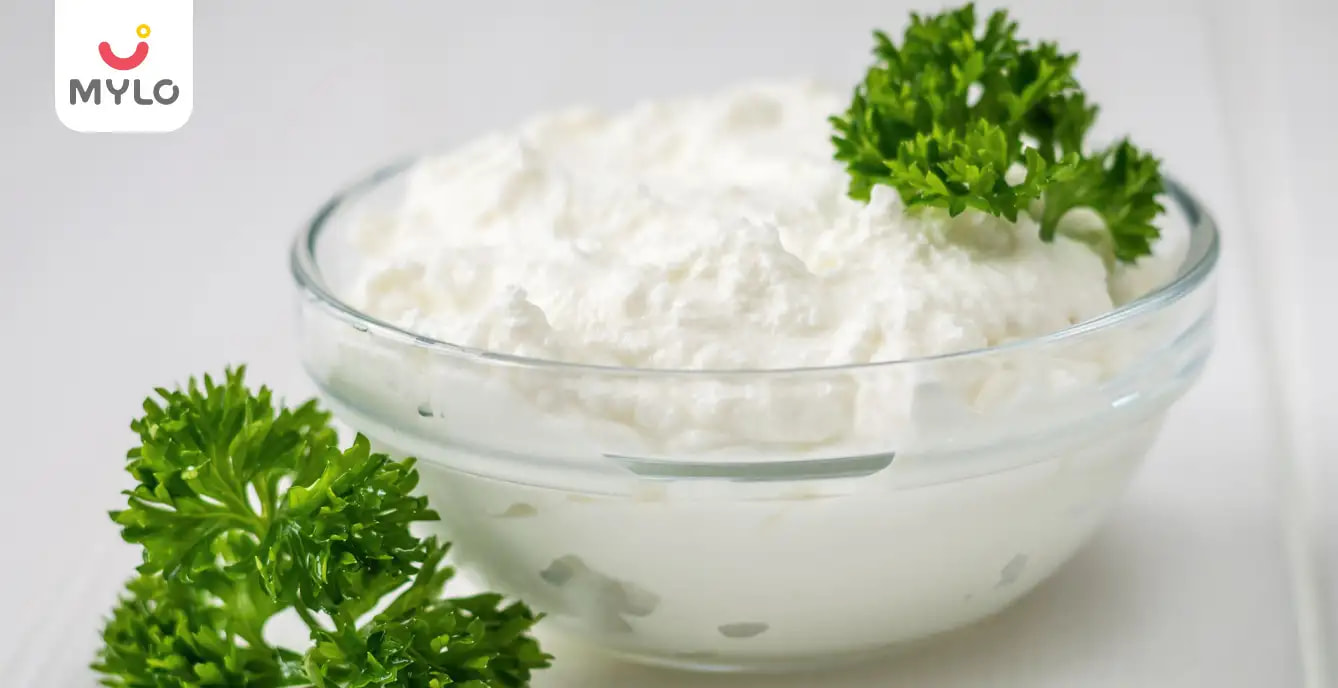
PCOS & PCOD
Is Curd Good for PCOS: The Ultimate Guide to Debunking Myths and Discovering Benefits
Updated on 21 September 2023



Medically Reviewed by
Dr. Shruti Tanwar
C-section & gynae problems - MBBS| MS (OBS & Gynae)
View Profile

Polycystic ovary syndrome (PCOS) is a common hormonal disorder that affects millions of women worldwide. In recent years, there has been a growing interest in the role of diet and nutrition in PCOS management. One food item that often comes up in discussions is curd, also known as yogurt. But is curd good for PCOS? In this ultimate guide, we will debunk myths surrounding curd and explore its potential benefits for women with PCOS.
Myths About Eating Curd for PCOS and the Truth Behind Them
First, let us understand some common myths surrounding PCOS and yogurt and the truth behind them:
Myth 1: Curd worsens PCOS symptoms
There is a common misconception that consuming curd can worsen the symptoms of PCOS. However, this is not true. Curd is actually beneficial for women with PCOS due to its rich nutritional profile. It is a good source of calcium, protein, and probiotics, which can help improve overall health and manage PCOS symptoms. The key is to consume curd in moderation as part of a balanced diet.
Myth 2: Curd increases weight gain in PCOS
Weight gain is a common symptom of PCOS, and many believe that curd can contribute to further weight gain. However, curd is a low-calorie food that can be included in a PCOS diet without causing weight gain. In fact, the protein and calcium in curd can promote satiety and help control cravings, making it an excellent choice for weight management in PCOS.
You can also read : PCOS Weight Loss in 1 Month: How to Shed Pounds Fast
Myth 3: Curd aggravates insulin resistance in PCOS
Insulin resistance is a hallmark of PCOS and can lead to various health complications. Contrary to popular belief, curd does not aggravate insulin resistance. In fact, the probiotics present in curd can improve gut health and enhance insulin sensitivity. Including curd in your PCOS diet can help regulate blood sugar levels and manage insulin resistance effectively.
Myth 4: Curd causes hormonal imbalance in PCOS
Hormonal imbalance is a major concern for women with PCOS, and some believe that consuming curd can further disrupt hormonal levels. However, curd is a good source of probiotics, which can actually help restore the balance of gut bacteria and improve hormonal health. Including curd in your diet can have a positive impact on your hormonal balance and overall well-being.
Myth 5: Curd should be completely avoided in PCOS
There is a misconception that curd should be completely avoided in a PCOS diet. However, curd is a nutritious food that can provide several health benefits for women with PCOS. It is a good source of calcium, which is essential for bone health, and protein, which is important for muscle maintenance. Including curd in your PCOS diet in moderation can be beneficial for your overall health.
You may also like : Dark Chocolate for PCOS: Unlocking the Potential of a Guilt-Free Indulgence
Is Curd Good for PCOS: Expert Opinion
Many women wonder, can I eat curd in PCOS. Let’s find out.
Curd, also known as yogurt, can be beneficial for women with PCOS. PCOS has been linked to an imbalance in gut bacteria, and consuming curd can help restore this balance and improve digestive health. It is packed with essential nutrients like calcium, protein, and vitamins B12 and D. These nutrients are important for overall health and can help support hormonal balance in women with PCOS.
PCOS is often associated with insulin resistance and impaired glucose metabolism. Curd has a low glycemic index, meaning it doesn't cause a rapid spike in blood sugar levels. Including curd in your diet can help regulate blood sugar and improve insulin sensitivity.
While curd can be beneficial for PCOS, it's important to choose plain, unsweetened curd without any added sugars or artificial flavors. Additionally, individual responses to curd may vary, so it's recommended to listen to your body and consult with a healthcare professional or registered dietitian before making any significant dietary changes.
You may also like : Beetroot for PCOS: Discovering a Natural Approach to Managing Symptoms
What are the Benefits of Curd for PCOS?
Let us understand the benefits yogurt can offer to women with PCOS:
1. Improved Gut Health
Curd contains probiotics that can promote the growth of healthy bacteria in the gut. This can improve digestion, reduce bloating, and enhance nutrient absorption. A healthy gut is crucial for overall well-being and can have a positive impact on PCOS symptoms.
2. Enhanced Bone Health
PCOS increases the risk of osteoporosis due to hormonal imbalances. Curd is a good source of calcium, which is essential for maintaining strong and healthy bones. Including curd in your PCOS diet can help prevent bone loss and reduce the risk of osteoporosis.
3. Weight Management
Curd is a low-calorie food that can help in weight management, a common concern for women with PCOS. The protein in curd promotes satiety and can help control cravings, making it easier to maintain a healthy weight.
4. Blood Sugar Regulation
PCOS is often associated with insulin resistance, which can lead to high blood sugar levels. The probiotics in curd can improve gut health and enhance insulin sensitivity, helping to regulate blood sugar levels and manage insulin resistance.
5. Hormonal Balance
Curd contains probiotics that can restore the balance of gut bacteria, which in turn can have a positive impact on hormonal balance. Including curd in your PCOS diet can help regulate hormonal levels and improve overall well-being.
You may also like : Soy for PCOS: Should You Eat it or Avoid It?
What's the Link Between PCOS and Yogurt?
Yogurt, a common form of curd, has been studied for its potential benefits in PCOS. Research suggests that yogurt consumption can improve insulin resistance and hormonal balance in women with PCOS. Yogurt contains probiotics that can positively influence gut bacteria, leading to improved digestion, better absorption of nutrients, and enhanced overall health.
The calcium and protein in yogurt also contribute to its benefits for PCOS. Calcium is essential for bone health, and PCOS increases the risk of osteoporosis. Protein helps in weight management and can contribute to a feeling of fullness, reducing the likelihood of overeating.
Including yogurt in your PCOS diet can be a healthy and nutritious choice. However, it is important to choose plain yogurt without added sugars or artificial flavors to maximize its benefits.
You may also like : Cinnamon for PCOS: Discovering the Natural Support You've Been Missing
How Is Greek Yogurt Good for PCOS?
Greek yogurt, a strained version of regular yogurt, offers additional benefits for women with PCOS. It contains higher protein content and lower carbohydrates compared to regular yogurt. This makes Greek yogurt an excellent option for managing weight and blood sugar levels in PCOS.
The higher protein content in Greek yogurt promotes satiety, reduces hunger pangs, and helps in maintaining a healthy weight. It also aids in muscle maintenance and repair, which is essential for overall health and fitness.
Additionally, the lower carbohydrate content in Greek yogurt helps in regulating blood sugar levels. This can be particularly beneficial for women with PCOS, as insulin resistance and high blood sugar are common concerns.
Including Greek yogurt in your PCOS diet can provide you with the benefits of yogurt while offering an extra boost to your nutritional intake.
You may also like : PCOD Diet: How the Right Diet Can Transform Your Life
How to Eat Curd for PCOS?
Let us now understand how to consume curd or yogurt for PCOS:
1. Smoothies
Blend curd with your favorite fruits and a handful of spinach for a refreshing and nutritious smoothie. You can also add a scoop of protein powder for an added protein boost.
2. Parfaits
Layer curd with fresh berries, nuts, and granola for a delicious and filling parfait. This makes for a healthy breakfast or snack option.
3. Salad Dressing
Mix curd with herbs, lemon juice, and a dash of honey to create a creamy and flavorful salad dressing. Drizzle it over your favorite salad for a nutritious and satisfying meal.
4. Curd Rice
Cook rice and let it cool. Mix it with curd, grated cucumber, and a tempering of mustard seeds and curry leaves for a cooling and comforting meal option.
5. Overnight Oats
Combine curd with oats, chia seeds, and your choice of toppings such as fruits, nuts, and honey. Let it sit overnight in the refrigerator for a quick and nutritious breakfast.
The Bottomline
Now that we know the answer to the initial question, is curd good for PCOS, it wouldn’t be wrong to say that curd, when consumed in moderation, can be a beneficial addition to a PCOS diet. Consuming curd for PCOS can offer several health benefits such as improved gut health, enhanced bone health, weight management, blood sugar regulation, and hormonal balance. Including curd or yogurt in your diet can provide you with essential nutrients and support overall well-being.
References
1. Bykowska-Derda A, Kałużna M, Garbacz A, Ziemnicka K, Ruchała M, Czlapka-Matyasik M. (2023). Intake of Low Glycaemic Index Foods but Not Probiotics Is Associated with Atherosclerosis Risk in Women with Polycystic Ovary Syndrome. Life (Basel).
2. Li T, Zhang Y, Song J, Chen L, Du M, Mao X. (2022). Yogurt Enriched with Inulin Ameliorated Reproductive Functions and Regulated Gut Microbiota in Dehydroepiandrosterone-Induced Polycystic Ovary Syndrome Mice. Nutrients.
3. Rajaeieh G, Marasi M, Shahshahan Z, Hassanbeigi F, Safavi SM. (2014). The Relationship between Intake of Dairy Products and Polycystic Ovary Syndrome in Women Who Referred to Isfahan University of Medical Science Clinics in 2013. Int J Prev Med.





Medically Reviewed by
Dr. Shruti Tanwar
C-section & gynae problems - MBBS| MS (OBS & Gynae)
View Profile


Written by
Anupama Chadha
Anupama Chadha, born and raised in Delhi is a content writer who has written extensively for industries such as HR, Healthcare, Finance, Retail and Tech.
Read MoreGet baby's diet chart, and growth tips

Related Articles
Related Questions
Hello frnds..still no pain...doctor said head fix nhi hua hai..bt vagina me pain hai aur back pain bhi... anyone having same issues??

Kon kon c chije aisi hai jo pregnancy mei gas acidity jalan karti hain... Koi btayega plz bcz mujhe aksar khane ke baad hi samagh aata hai ki is chij se gas acidity jalan ho gyi hai. Please share your knowledge

I am 13 week pregnancy. Anyone having Storione-xt tablet. It better to have morning or night ???

Hlo to be moms....i hv a query...in my 9.5 wk i feel body joint pain like in ankle, knee, wrist, shoulder, toes....pain intensity is high...i cnt sleep....what should i do pls help....cn i cosult my doc.

Influenza and boostrix injection kisiko laga hai kya 8 month pregnancy me and q lagta hai ye plz reply me

RECENTLY PUBLISHED ARTICLES
our most recent articles
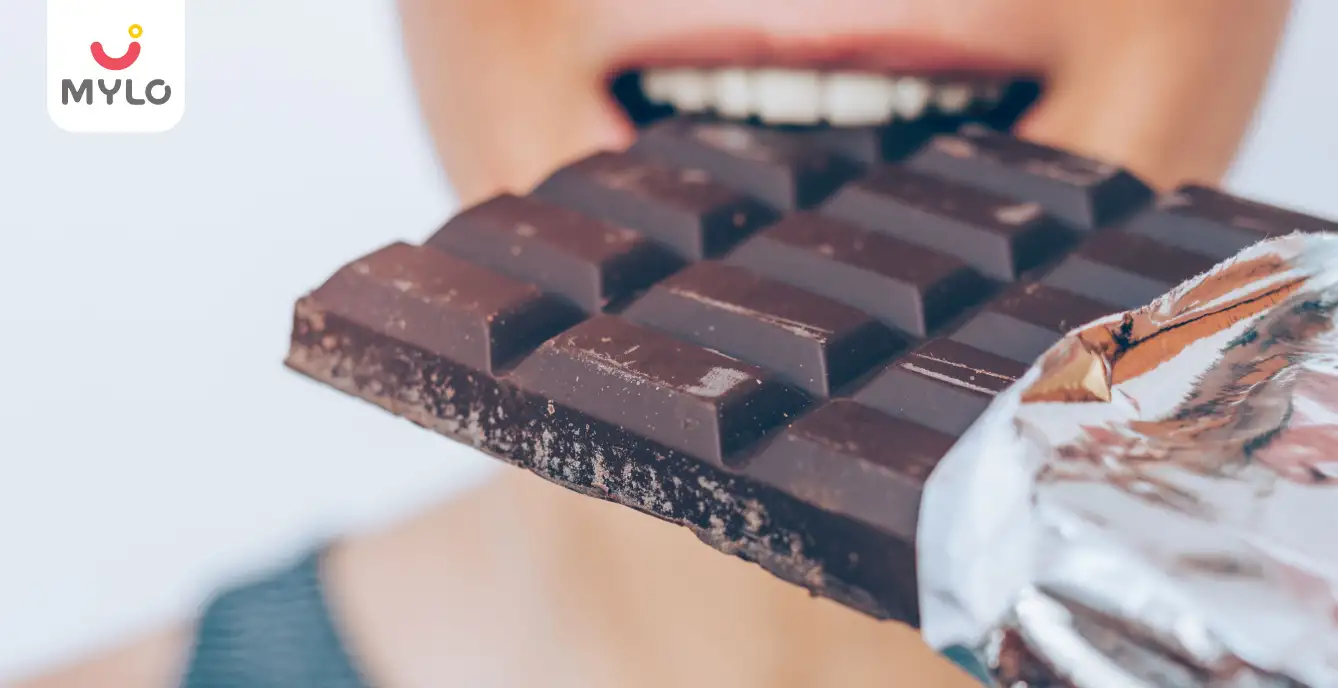
Diet & Nutrition
Dark Chocolate for PCOS: Unlocking the Potential of a Guilt-Free Indulgence
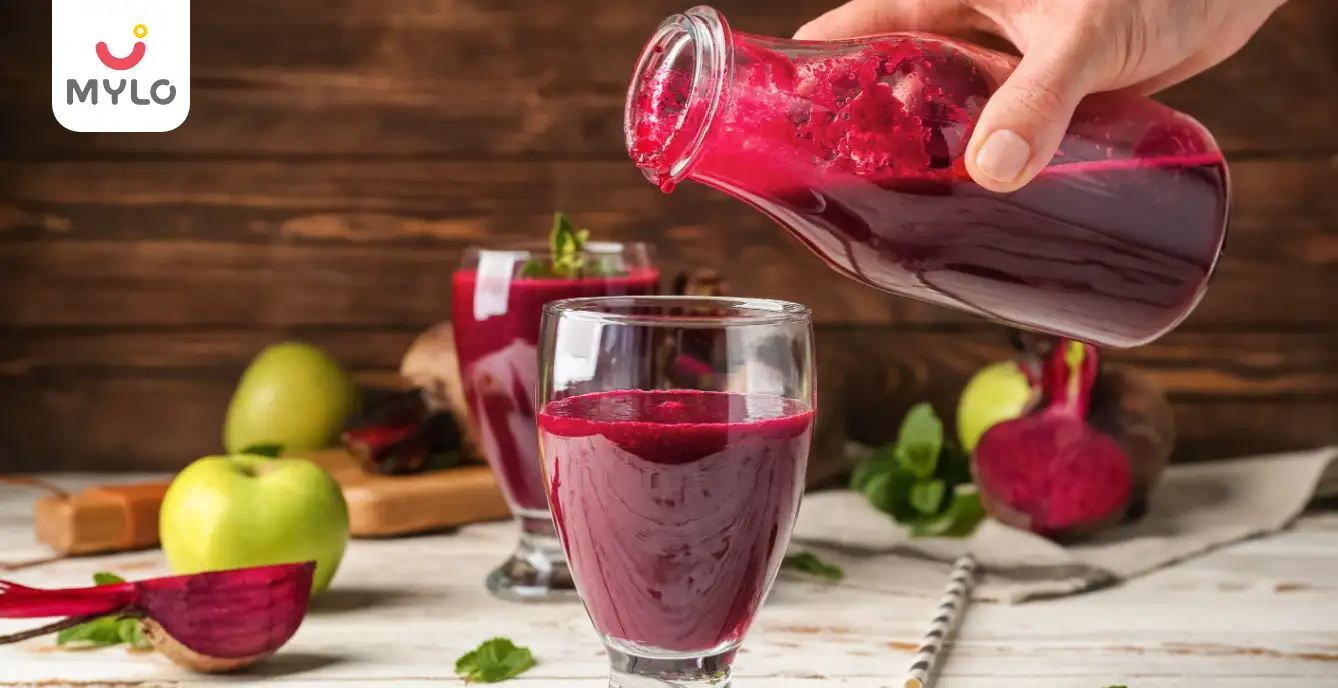
PCOS & PCOD
Beetroot for PCOS: Discovering a Natural Approach to Managing Symptoms
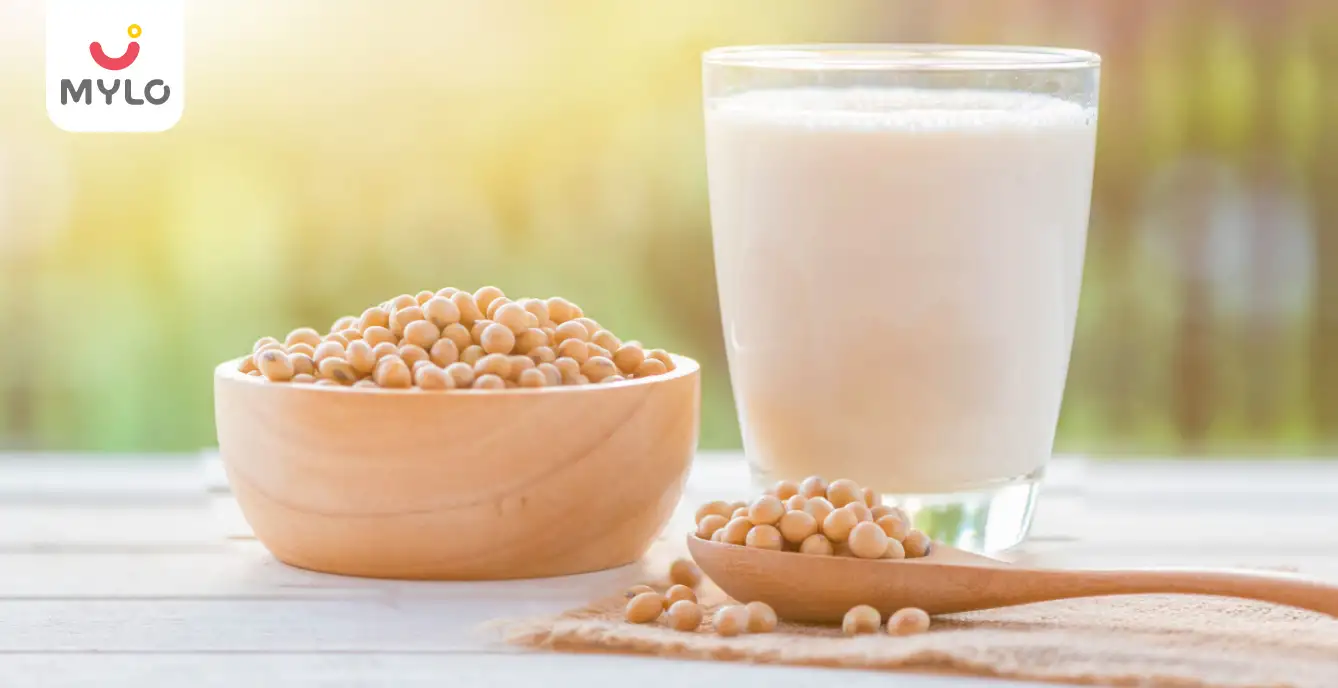
PCOS & PCOD
Soy for PCOS: Should You Eat it or Avoid It?
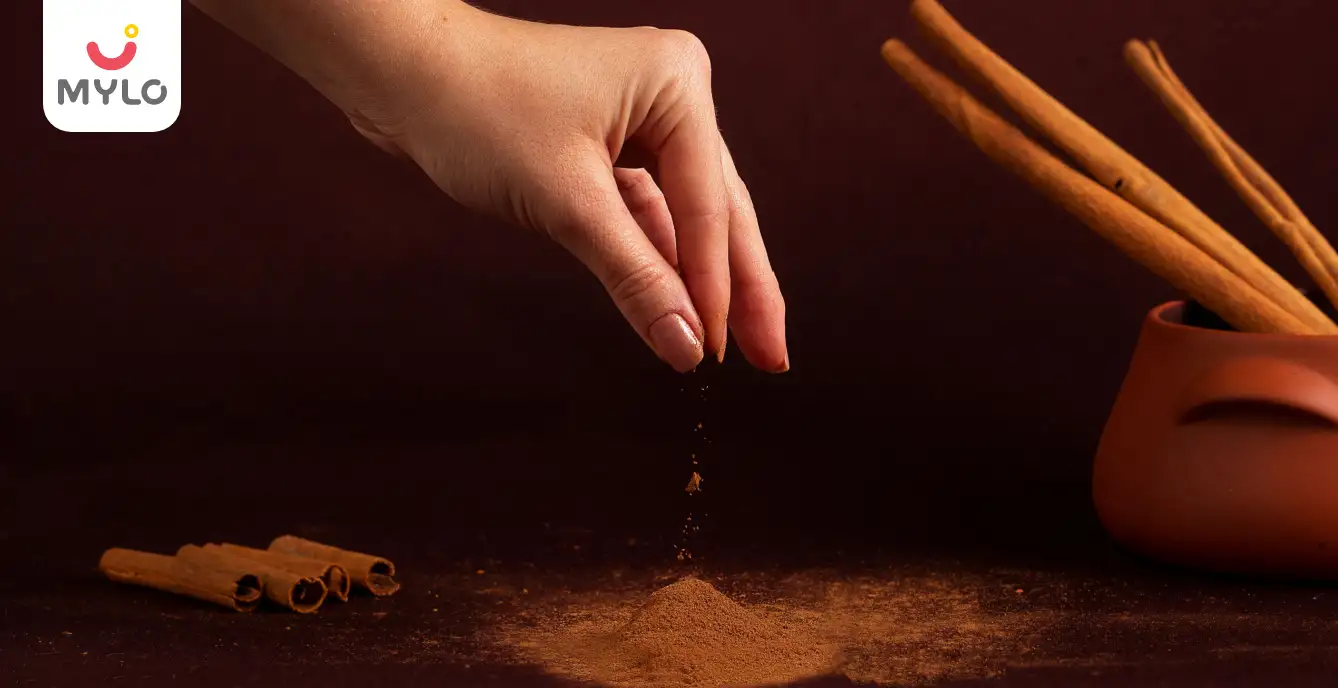
PCOS & PCOD
Cinnamon for PCOS: Discovering the Natural Support You've Been Missing

Motor Skills
When Do Babies Start Walking?

Second Trimester
The Ultimate Guide to 4th Month Pregnancy Symptoms
- Your Guide to 2 Months Pregnant Symptoms: What to Expect
- The Ultimate Balanced Diet Chart: Your Guide to Optimal Nutrition
- Mundan Ceremony: A New Parent's Guide to Customs, Traditions and Celebrations
- Dates for PCOS: How to Harness their Health Benefits
- Coconut Water for PCOS: Discovering the Natural Support You've Been Missing
- Everything You Need to Know About the Length of Vagina
- Herbs for Male Fertility: Exploring Herbal Solutions for Male Reproductive Health
- Is Banana Good for PCOS: A Comprehensive Guide to Understanding Their Relationship
- Flax Seeds for PCOS: How This Superfood Can Improve Symptoms
- Shankhpushpi: Discover the Health Benefits of This Ancient Herb
- Chamomile: The Ultimate Guide to Discovering its Medicinal Properties and Health Benefits
- Endometrial Thickness in Pregnancy: Your Guide to Understanding What is Normal
- Hypomenorrhea: When Your Period is Lighter Than Usual
- Anti Mullerian Hormone Test: The Key to Early Detection of Fertility Issues


AWARDS AND RECOGNITION

Mylo wins Forbes D2C Disruptor award

Mylo wins The Economic Times Promising Brands 2022
AS SEEN IN
















- Mylo Care: Effective and science-backed personal care and wellness solutions for a joyful you.
- Mylo Baby: Science-backed, gentle and effective personal care & hygiene range for your little one.
- Mylo Community: Trusted and empathetic community of 10mn+ parents and experts.
Product Categories
baby carrier | baby soap | baby wipes | stretch marks cream | baby cream | baby shampoo | baby massage oil | baby hair oil | stretch marks oil | baby body wash | baby powder | baby lotion | diaper rash cream | newborn diapers | teether | baby kajal | baby diapers | cloth diapers |




